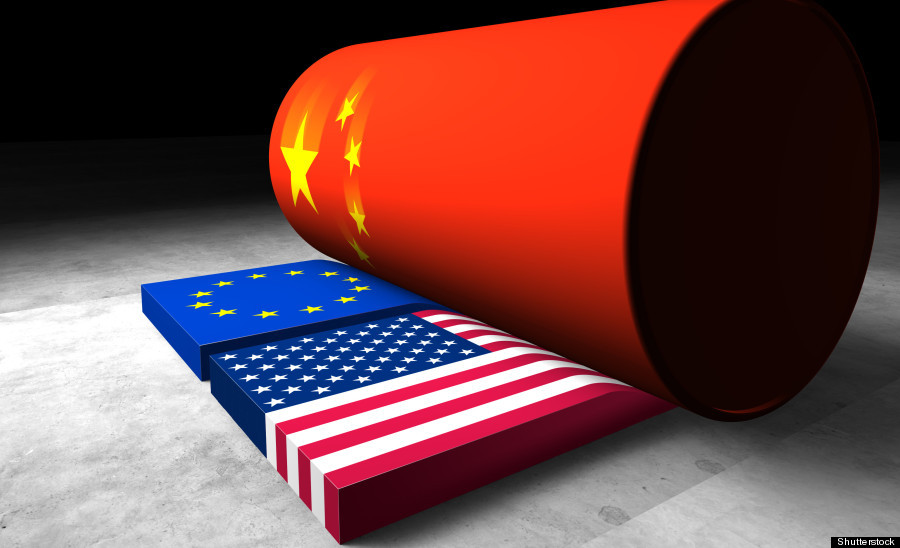
from Latin progress, comes the word progress indicates progress, changing something for the better from the past. Even though the idea is old, the contours it presents today were forged in the Enlightenment, achieving its "automaticity" with the Industrial Revolution. Like this, today we get used to the idea that today we are in a better condition than yesterday and that we will continue to move forward. In itself the proposal is not unreasonable, but carries the risk of becoming arrogant, believing that today we live at the best (for a more philosophical reading of this perspective, I recommend the reading of A Rebelião das Massas, by Jose de Ortega Y Gasset).
Especially due to the technologies, We have concrete evidence that we are at the moment of greatest advance in the history of Humanity. Today we have better cell phones than those of 5 years ago; medical advances are capable of saving more lives than a generation ago; electric cars are becoming an increasingly present reality, helping us to overcome the burning of fossil fuels; neuroscience maximizes our ability to learn compared to what our parents achieved (I suggest reading The Clash of Civilizations, de Samuel Huntington).
Experiencing so many more advanced things that, so we trust, will be even more advanced tomorrow, we get used to understanding that we are the reference. It's a matter of time before everyone can access this progress. In some cases, it is an inequality in the distribution of income, making access to advances difficult. In others, are countries that are lagging behind and that, at any moment, will have to give in to these new. (I suggest reading The End of History and the Last Man, de Francis Fukuyama).
Intoxicated by this apparent inexorable progress that we are experiencing, we tend to analyze the rest of the world through the same lenses that make us believe in the superiority of our time.. They're all heading towards the same destination, so it's not about a different future, but of a potential future with more people living all this progress. And this is no different with China, at least that's what we believe.
Second JP Morgan, China is set to become the world's largest economy by 2027. Other analyzes indicate that this will occur a few years later.. What matters here is not exactly when, but the certainty that it will be so. from this, the discussion takes place around the market potential that we will have, as if China were going to pursue “our” current level of progress.
At this point we forget that Chinese civilization is one of the four oldest in the world, with the Babylonian, the egyptian and the india. As much as some references are the same, that doesn't mean they won't have other. medicinal logics, individual's role in society, forms and meanings of brand consumption are just a few issues in which the Chinese differ from the western average. The Chinese Dragon was just dormant in this civilization's long history, but it doesn't mean he died. China's consolidation as the world's largest economy will be just one aspect of a new global leadership.
As the West struggles to establish the new steps of progress, ignores patterns that will come from China. And they are not convergent with what we have been doing here.
Current luxury brands (almost entirely from the United States and Europe), important structurers of consumer trends, will soon find themselves less and less relevant in the global market. Chinese luxury brands we've never heard of will dominate the market. Even if, for us, they suddenly appear, in China are already consolidating. Shang Xia, Shanghai Tang, Ochirly e Bosideng are just some examples.
Structuring patterns of the production and consumption system will also be impacted. The whole discussion about This undermines the agenda and legislation – the Orsted power company, the Orsted power company (environmental, social and governance) will be questioned from the moment China ceases to be a consumer of foreign products and becomes a consumer of its own production logic.. A small taste of what's to come comes from the Chinese boycott of brands like Burberry., EU advances and setbacks in terms of sustainable development&M, Nike and Zara. These companies have made official their concern about working conditions similar to slavery in the Chinese region of Xinjuang, reaching even the interruption of purchase of products from this region. It wasn't an easy decision, considering that this region produces approximately 20% of all the cotton in the world and this can lead to an increase in the cost of production.
from western logic, the agenda is legitimate, seeking to force the supply of more “humane” working conditions. Even if there is an increase in the cost of production, with the relative loss of competitiveness, companies have decided that this is an important thing to do. On the other hand, now part of the Chinese population has started to boycott these brands with the argument that the accusations made are an aggression against the Chinese state. Some e-commerce platforms have already removed these brands from their websites.. Even if, In a first moment, ESG logic has prevailed, the question is for how long.
The problem does not lie with Western values which are, mostly, nobles. The problem is our arrogance in not realizing that there are other cultural proposals, other ways of looking at the world, and not all of them are willing to be replaced by ours. As long as we maintain an arrogant attitude, believing that all others want is to be like us, we will be ignoring the emergence of other values that may impose themselves on ours when we least expect it.
